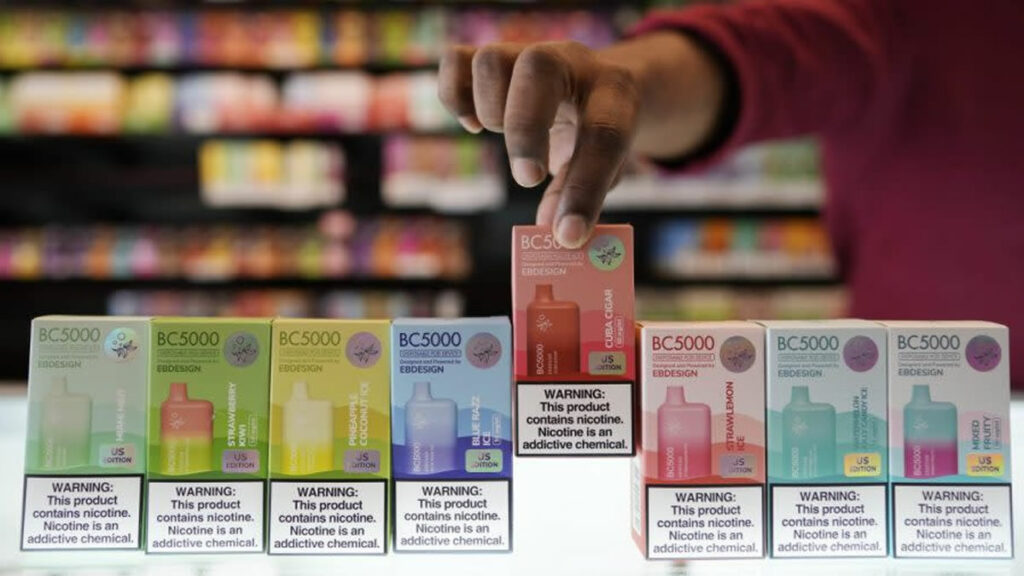A bill proposing stricter regulations on vapor products has cleared the House Health and Human Services Committee and is now headed to the House floor. House Bill 1069 (HB1069) passed with a 7-5 vote, introducing new requirements for vapor product distributors and retailers in the state.
Key Provisions of HB1069
Under the proposed legislation, distributors must obtain a license before selling vapor products for resale. Additionally, manufacturers must certify that their products have a pending Premarket Tobacco Product Application (PMTA) with the U.S. Food and Drug Administration (FDA). Retailers must also register with the Department of Revenue, with separate registrations required for each business location.
Failure to comply with these requirements could result in severe penalties. Distributors selling uncertified products face Class 2 misdemeanor charges, while manufacturers providing false certifications could be charged with a Class 1 misdemeanor. Contraband vapor products must be disposed of, and non-compliant businesses risk losing their licenses.
Supporters: Targeting Illegal Products
Republican Representative Brian Mulder, a key proponent of the bill, emphasized its focus on eliminating illegal and potentially harmful products from the market. “We’re asking retailers to register and work with certified distributors to ensure they’re selling legal products,” Mulder said. “We don’t want unregulated Chinese products with unknown ingredients reaching consumers.”
Sam Madson, a lobbyist for the South Dakota Petroleum and Propane Marketers Association, echoed this sentiment. “Our members want to sell legal, safe products. This bill aligns vapor regulations with existing tobacco laws, ensuring accountability across the supply chain,” he explained.
Opponents: A Threat to Small Businesses
Critics argue that HB1069 disproportionately harms small businesses while favoring large tobacco companies. Jordan Mason of South Dakota Retailers for Better Alternatives called the bill “unconstitutional” and warned of its economic and public health consequences. “This bill devastates small businesses, eliminates hundreds of jobs, and hands the market to Big Tobacco,” Mason said. “It’s a business protection plan for corporations at the expense of local entrepreneurs.”
Kurt Kadlik, Vice President of South Dakota Retailers for Better Businesses, highlighted the FDA’s controversial PMTA process. “The FDA’s regulatory scheme has been declared illegal by courts. This bill forces the state to enforce a flawed system, shutting down hundreds of small businesses,” he said. Kadlik also noted the vape industry’s significant economic contributions, including $74 million in economic activity, 429 jobs, and $6.1 million in state and local taxes.
Concerns Over Market Control
During the committee hearing, Republican Representative Taylor Rehfeldt raised questions about the bill’s impact on legal products and its focus on Chinese imports. Mulder responded that the bill aims to create a registry of FDA-compliant products while removing illegal ones from shelves. “We want to know what’s being sold and ensure it meets FDA standards,” he said.
However, Mason countered that the FDA’s PMTA process heavily favors Big Tobacco. “Out of 26 million applications, only 23 were approved—all owned by major tobacco companies,” he stated. Kevin Quick, owner of Down Ohm Vapors, added that the bill would hurt small businesses selling American-made e-liquids and devices. “This bill targets small companies while allowing Chinese-made disposables to dominate the market,” Quick said.
What’s Next?
HB1069 now moves to the House floor for further debate. If passed, it could reshape South Dakota’s vaping industry, potentially driving small businesses out of the market while tightening control over product distribution. Stakeholders on both sides continue to voice their concerns, highlighting the bill’s far-reaching implications for public health, economic growth, and regulatory fairness.
- UK Announces Mandatory Vape Tax and Duty Stamps from 2027 - February 10, 2026
- Sri Lanka Travel 2026: Total Ban on Cigarettes & Vapes - February 5, 2026
- NY Tax Proposal: Hochul Targets ZYN with 75% Levy - January 29, 2026


